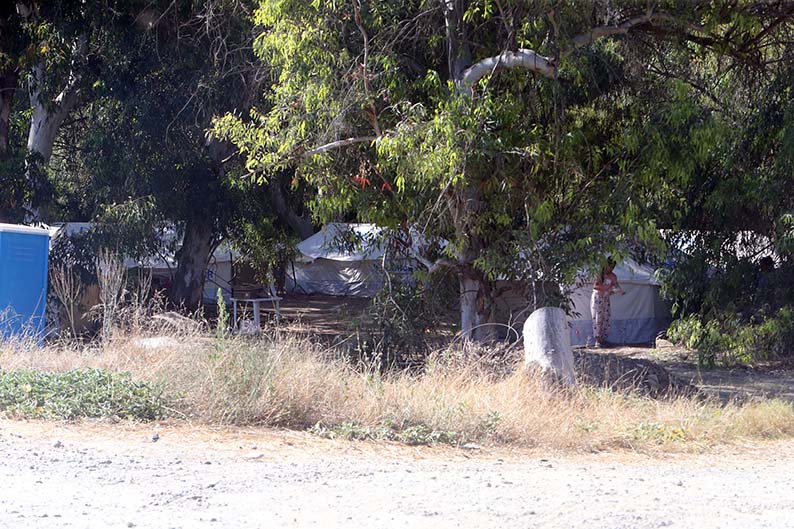The government on Tuesday remained tight-lipped over mounting criticism on its handling of 27 migrants stranded in the buffer zone, with President Nikos Christodoulides stressing a new influx of arrivals will not be allowed.
“What I can say is that Cyprus has conveyed its readiness to the UN, in the case of any humanitarian needs which may arise,” Christodoulides told reporters.
Currently, 27 migrants are stranded in the buffer zone after saying they are set to request asylum but have so far been refused entry into the Republic.
Three have required hospital treatment, including one 13-year-old boy who is still in Nicosia general hospital.
The migrants, including women, children, and unaccompanied minors are from Afghanistan, Iran, Sudan and Cameroon.
They arrived in two groups, one of 14 individuals who got to the buffer zone over the weekend, and the other which has been stranded since between May 15 and 25.
The government has attributed its entry refusal to the Green Line regulation, which has raised eyebrows in UN circles that have told the Cyprus Mail the government’s handling of the matter violates international law.
Asked to respond to the accusations, government sources said they did not wish to comment.
Christodoulides said some of the migrants had travelled from Afghanistan to Turkey and then to the north.
“You realise that Turkey has responsibilities for people that come from Syria, as well as other countries.”
He added that the Red Cross is offering humanitarian assistance to the people in the buffer zone.
“There will not be a new wave of illegal migrants.”
Sources raised concerns this attitude may be linked to the upcoming elections amid fears the matter may be instrumentalised by political parties.
The UNHCR has warned that the asylum seekers are living in tents and exposed to extreme weather without access to decent living conditions.
Underlying the government’s stance is a rhetoric that if it allows these 27 migrants to seek asylum, then more may follow.
However, the government could not provide clarity on why it has focused on these 27 as hundreds have crossed the buffer zone in the past few years.
The migrants were spotted by UN peacekeeping forces who alerted the UNHCR and in turn informed the Republic of the migrants’ intention to seek asylum.
They have since been moved closer to a road closer to the Republic for easier access to humanitarian aid.
The UNHRC has provided food and tents to the migrants, amid concerns of the ongoing heatwave and the conditions they are living in.







Click here to change your cookie preferences